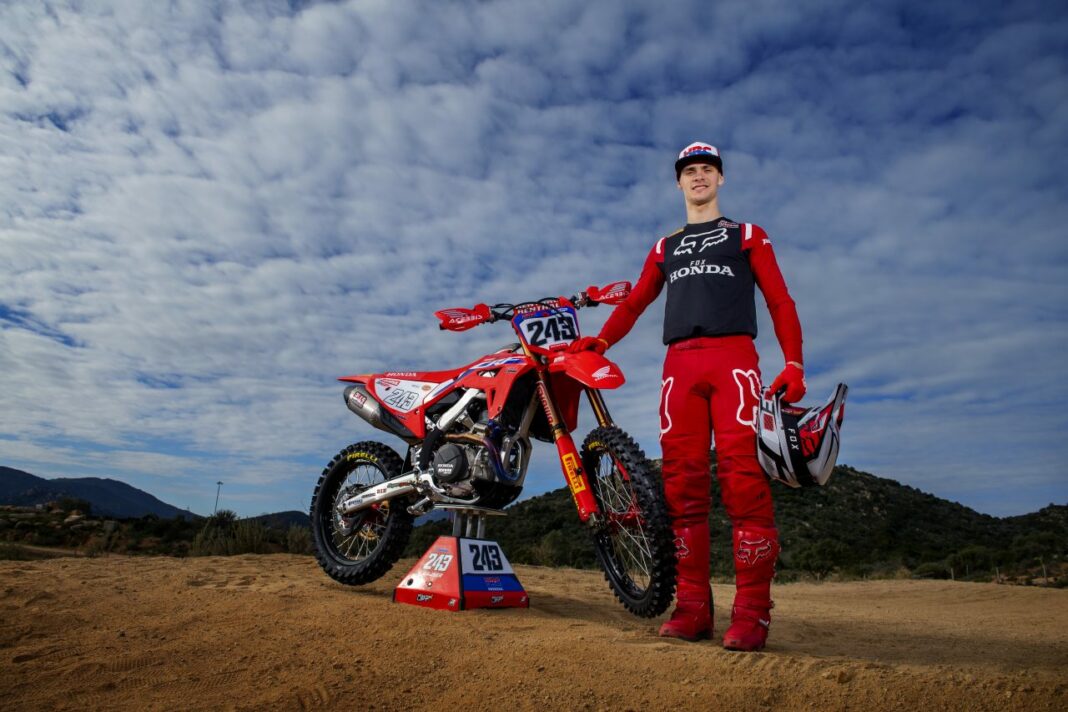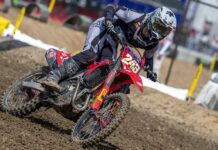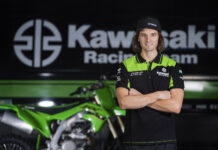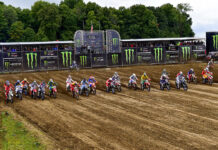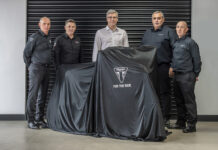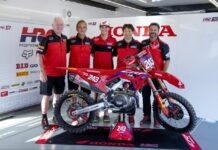Team HRC’s four-time world champion Tim Gajser raced to his latest title this year on a radically revised CRF450RW that he feels was an essential weapon in his armoury.
“Already last year at the end of the season when we started the preparation, all the testing for this year, immediately when I sat for the first time on the new bike I felt really good,” he said. “Honda made a huge step forward with everything.
“They make bikes way more lighter, way more powerful. So everywhere they improve the bikes and definitely this year I was really enjoying it. I was really feeling at one with the bike.”
With Honda giving its riders leeway to customise their individual machines to suit personal requirements, while Gajser and his team-mate Mitch Evans may roll out on bikes that look essentially the same the reality is very different.
“I think the difference is like day and night,” said Gajser. “From outside it doesn’t look so different but on the inside…from the chassis, from everything. Honda and HRC always give a chance so you can really modify the bike like you want. So I have my set-up of the bike and Mitch has it completely different because he is a different rider. Basically, you have lots of options how you want to set up the bike.”
Technology and technique go hand in hand and for Gajser the process of honing his bike-handling skills is constantly ongoing.
“We improved some things where we were struggling in the past – especially riding in the sand. Even the starts were better this year so overall many things went better and we improved a lot.
“Even if you win the titles I always say it’s never so good that it can’t be better so I always like to search for the weak points and try to improve myself every year. That’s the goal. We got better in the sand – that was our goal for this year, to improve our sand skills.
“We managed to do that but, of course, improving never ends. You have to improve every time. Like I said, try to find your weak points and try to work on them.”
With the MXGP calendar evolving over recent years to include more sand-based tracks, the Slovenian knew he had to sharpen his skills in the soft stuff if he was going to stay in contention.
“Let’s say three or four years ago I never paid attention so much to riding in the sand. It was kinda like we just had a couple of GPs per year in sand conditions. Now there are so many good riders you need to be really good everywhere. On all kinds of soils.
“The last two years I really put a lot of focus to ride a lot in the sand, to adjust the bike correctly because riding in the sand and riding on the hardpack are two different things. The set-up, the suspension, the riding technique – it is completely different – so I really was working hard on how to set up the bike in the sand.
“It takes let’s say two years but I’m really happy we did this hard work, this huge step. What was a big weak point for me, now is not any more. I’m really happy with the improvement.”
With four world titles at just 24 years old, Gajser is the poster boy for a new generation of riders but already he’s looking over his shoulder at the next wave of talent that’s coming through.
“Jorge [Prado] is a great rider. He has shown already a lot of speed in MX2, being back-to-back world champion. This year he has shown good speed so definitely with one more off-season, one more winter, he’s going to have good preparation and of course he’s going to be strong next year.
“As everybody knows, MXGP is a really stacked class with so many good riders that are able to ride in front, able to fight for the podiums, able to fight for the race wins, GPs and even the title. Definitely it’s going to be an interesting season and I’m looking forward to it.”



